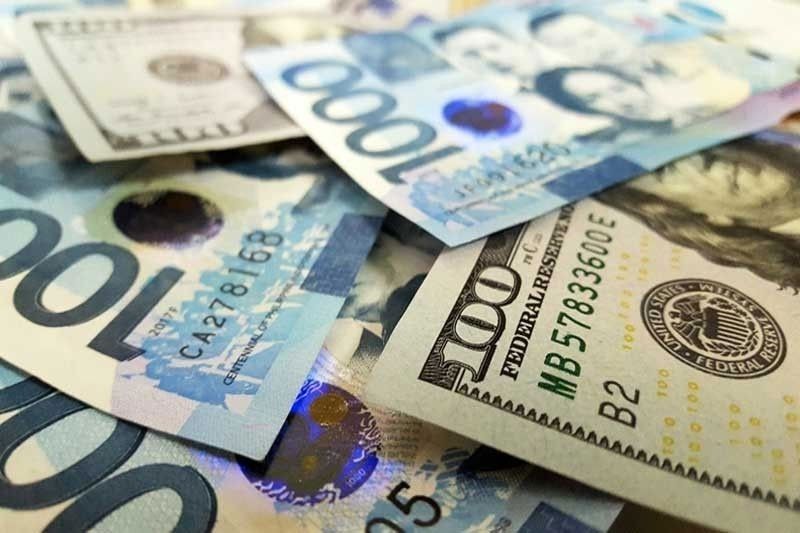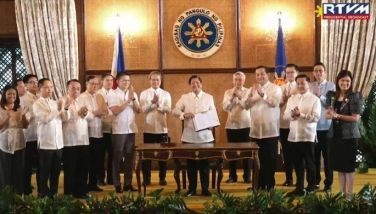BSP says peso's weakness 'not a concern at the moment'

MANILA, Philippines — The Bangko Sentral ng Pilipinas is not worried about the current weakness of the peso, adding it is ready to step in to tame any sharp depreciation of the local currency.
In a Monday morning interview with ABS-CBN News Channel, BSP Governor Benjamin Diokno said the central bank is already intervening in the foreign exchange market to temper the local unit’s weakness by converting some of its dollar reserves into peso. But the BSP chief said monetary authorities still trust in the market-determined exchange rate.
The peso on Friday breached the P50-level for the first time in over a year to close at P50.08 versus the US dollar, its weakest performance since it finished at P50.19 per dollar on June 23, 2020. On Monday, the peso opened the trading week at P50.05 against the greenback and is moving sideways in the morning.
“The BSP will continue to adopt at market-determined exchange rate policy. That’s our approach. We deal with exchange rate volatility, looking at supply and demand of foreign exchange,” he said.
“At the same time, our role is smoothen the fluctuations, and to make sure market conditions are orderly rather than steering peso to a particular level, whether it’s stronger or weaker than other currencies,” he added.
As pandemic curbs further ease, importers are exchanging more pesos for dollars to ship in more goods to meet a slow pick-up in consumer demand, thereby weighing on the local currency. A rallying dollar due to hawkish signals from the US Federal Reserve of a sooner-than-expected rate hike is adding pressure to the peso.
A sliding currency may raise the costs of imports, like fuel, and fan inflation, and it’s something that could threaten the BSP’s ultra-loose monetary policy settings. Already, some analysts believe the BSP might be forced to begin hiking rates earlier than thought to stem the peso’s slump. A premature rate hike from the BSP, in turn, could make credit costlier for pandemic-battered businesses and consumers, which could derail the economy’s nascent recovery.
But so far, Diokno is unfazed, arguing that the country still has “hefty” dollar reserves and that the seasonal uptick in remittances from Filipino migrants in the fourth quarter could buoy the peso. The BSP boss also said the Philippines can withstand the expected capital outflows once the Fed begins its tightening moves.
“I’m not worried about the Fed interest rates going up, that will cause a lot of problems for other emerging economies. But not for the Philippines,” he said.
“The BSP is data dependent. I’m comfortable that we’ll continue to be supportive of the economy,” he added.
- Latest
- Trending


























 Exclusive
Exclusive

